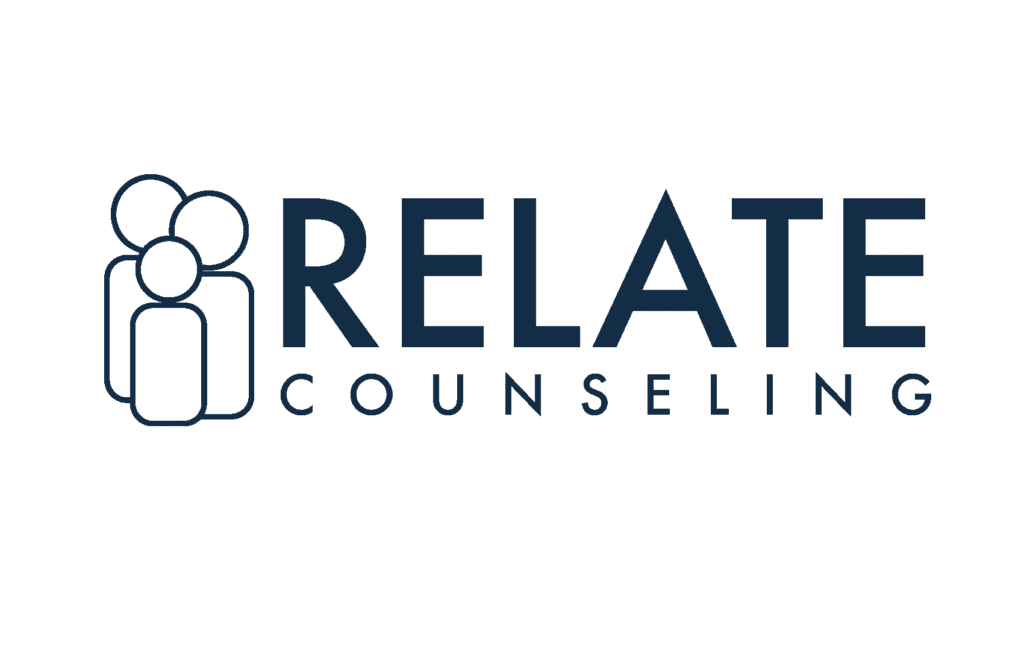Helping a family member with addiction is a sensitive and challenging task that requires patience, understanding, and a lot of heart. Watching a loved one struggle with addiction is painful and sometimes feels incredibly isolating. But it’s important to remember that support from family can make a huge difference in their recovery journey.
There are effective steps you can take to provide meaningful assistance.
What Is Addiction?
Addiction is an inability to stop using a substance or engaging in behavior despite the negative impact it has on one’s life. It can involve alcohol, drugs, or behaviors like gambling. According to Cleveland Clinic, addiction fundamentally alters the brain—first by subverting the way it registers pleasure and then by corrupting other normal drives such as learning and motivation.
While every individual’s journey into addiction varies, the condition often stems from a combination of genetic, environmental, and psychological factors. Understanding this complexity is the first step in knowing how to help a family member with addiction; it’s about recognizing the disease’s multifaceted nature rather than viewing it solely as a series of bad choices.
Recognizing the Signs of Addiction
Physical Signs of Addiction
One of the most visible indicators of addiction is the physical changes in a person. Unexplained weight loss or gain, bloodshot eyes, dilated or constricted pupils, and marks on the skin are common physical signs. Additionally, sudden neglect in personal grooming or an unusual smell on breath, body, or clothing can also hint at substance abuse.
These physical changes can serve as an early warning system. If you notice them, consider how to help a family member with addiction by having an open and honest conversation about what you’ve observed.
Behavioral Changes
Addiction doesn’t just manifest physically; it can radically alter a person’s behavior. Perhaps you’ve noticed your loved one is suddenly withdrawing from social activities they once enjoyed. They might start neglecting responsibilities at work, school, or home.
Unexplained financial issues can occur, such as borrowing money frequently without a clear reason or having valuables disappear mysteriously. Such behavior changes can be distressing to witness, but they also provide a cue that it’s crucial to start exploring how to help a family member with addiction. The earlier you address these issues, the better the chance for recovery.
Emotional and Psychological Signs
The toll of addiction on someone’s emotional and psychological well-being is considerable. Mood swings, irritability, defensiveness, and a general lack of motivation can all suggest that something deeper is happening. If your loved one seems unusually anxious, depressed, or exhibits a marked lack of interest in life, these might be signs of underlying addiction issues.
Recognizing these emotional and psychological signs is essential when figuring out how to help a family member with addiction. They indicate it’s time to take action by encouraging them to seek professional help or providing a supportive environment where they feel safe discussing their struggles.
Social and Relationship Issues
Addiction can strain relationships to the breaking point. People struggling with addiction may start to isolate themselves, pull away from close family and friends, and may even get involved with a new crowd that encourages their destructive behaviors. Conflict becomes more frequent, and trust issues may emerge, leading to a cycle of lying and deceit as the person tries to hide their addiction.
This deterioration in social relationships and an increase in secretive behavior underscore the urgency of understanding how to help a family member with addiction. Taking steps to address these issues as soon as possible can prevent further harm and begin the process of healing and recovery.
Changes in Priorities
A hallmark of addiction is when a person starts prioritizing the substance or behavior they’re addicted to over everything else. This might mean skipping important family events to use drugs or drink, or it could manifest as a loss of interest in hobbies or activities they used to love. When addiction takes hold, everything else—including jobs, relationships, and personal interests—becomes secondary.
Spotting this shift in priorities can deeply affect a family as they come to terms with how to help a family member with addiction. It’s a clear sign that professional intervention may be necessary to help your loved one reclaim their life from the grips of addiction.
Tips to Support Recovery: 9 Things on How to Help a Family Member With Addiction
Understanding the Situation
The first step in learning how to help a family member with addiction is to educate yourself on the nature of addiction. Knowing that addiction can affect anyone, regardless of background or character, can help you approach your family members with the compassion and understanding they need. Addiction is a complex condition involving physical, emotional, and psychological factors.
It is crucial to recognize it as a disease that requires professional treatment rather than a choice or moral failure.
Opening Lines of Communication
When you’re trying to figure out how to help a family member with addiction, communication is key. Start by expressing your concerns in a non-judgmental way. Let them know you’re there for them, care, and are willing to support them through their recovery.
Keep the conversation open and honest, and ensure they understand you come from a place of love and concern. Keep in mind that the goal is not to blame or shame them but to offer a safe space where they feel supported.
Seek Professional Help
Addiction is not something one can easily overcome alone. Encouraging your loved one to seek professional help is a crucial step. Research treatment options together and offer to help make appointments or even accompany them to visits if they’re open to it.
Various treatment options are available, including counseling, rehabilitation programs, and support groups. Having a professional guide your family member through their recovery process can significantly increase their chances of success.
Set Boundaries
Knowing how to help a family member with addiction also involves setting healthy boundaries. It’s essential to protect your well-being while providing support. Establishing clear boundaries about behaviors you will not tolerate and sticking to them is crucial.
It helps to prevent enabling behaviors, which, although well-intentioned, can inadvertently prolong the addiction. Boundaries also help the person with the addiction understand the consequences of their actions, which is an important part of the recovery process.
Offer Emotional Support
Your family member will likely face many challenges and setbacks on their recovery journey. Offering ongoing emotional support can significantly improve their motivation and overall outlook. Let them know you believe in their ability to overcome addiction and that you’ll celebrate their victories, no matter how small they may seem.
Listening without judgment, encouraging, and showing unconditional love are powerful ways to support their healing.
Encourage Healthy Lifestyle Changes
Learning how to help a family member with addiction involves promoting a healthy lifestyle. Encourage activities that help reduce stress and improve overall well-being, such as exercise, meditation, and hobbies. Eating well and maintaining a regular sleep schedule can also positively impact their recovery.
Engaging in these healthy habits together can provide additional support and strengthen your bond.
Be Patient and Stay Hopeful
Recovery is a journey, not a destination. There will be ups and downs, progress, and possibly relapses. It’s important to remain patient and keep hope alive.
Celebrate the small victories and stay focused on the ultimate goal of sobriety. Your support can play a significant role in your loved one’s recovery, but ultimately, their commitment to change is key.
Educate Yourself and Others
Educating yourself further about addiction and recovery can empower you to provide better support. Additionally, educating others can help reduce the stigma associated with addiction, creating a more supportive environment for your family members.
Resources such as books, reputable online sources, and support groups can provide valuable insights and coping strategies.
Take Care of Yourself
When figuring out how to help a family member with addiction, it’s easy to neglect your own needs. However, taking care of yourself is crucial. Ensuring your physical, emotional, and mental well-being can better equip you to support your loved one.
Consider seeking support for yourself through therapy, support groups, or confiding in trusted friends or family members.
A Path Forward
Supporting a loved one through addiction is not a straight path. It involves dealing with setbacks and challenges. Remembering to celebrate small victories and maintaining hope is vital.
Patience, persistence, and love can make a significant difference in helping your loved one navigate the difficult journey of overcoming addiction.
When trying to figure out how to help a family member with addiction, remember the importance of professional assistance. Addiction is a complex disease that often requires the guidance of healthcare professionals.
Rehabilitation programs, therapy, and support groups are fundamental to recovery.
Conclusion
Finding ways on how to help a family member with addiction is never an easy task.
It requires love, patience, determination, and, above all, support.
 Educating yourself, fostering a supportive environment, encouraging professional help, and taking care of your needs enables you to provide the vital assistance your loved one needs to embark on the road to recovery. You’re not alone in this journey, and there are numerous resources and communities available to aid both you and your family members in navigating the challenges of addiction. If you’re going through the challenging journey of helping a family member battle addiction, remember you’re not alone.
Educating yourself, fostering a supportive environment, encouraging professional help, and taking care of your needs enables you to provide the vital assistance your loved one needs to embark on the road to recovery. You’re not alone in this journey, and there are numerous resources and communities available to aid both you and your family members in navigating the challenges of addiction. If you’re going through the challenging journey of helping a family member battle addiction, remember you’re not alone.
Relate Counseling provides compassionate support and effective strategies for families facing such difficulties. Our experienced team offers counseling that addresses not only addiction but the underlying personal issues like anxiety, depression, and stress that often accompany it.
We invite you to explore our services and see how we can support you and your loved one toward recovery and healthier relationships.
Contact us today to schedule your free initial appointment. Let’s work together to create meaningful and secure connections within your family.
From enhancing communication to resolving conflicts and strengthening bonds, our services are tailored to foster meaningful and secure connections within your restructured family.
Learn more about how we can support you at Relate Counseling. If you have any questions, don’t hesitate to contact us. Let’s work together toward healing and strengthening your family bonds.




